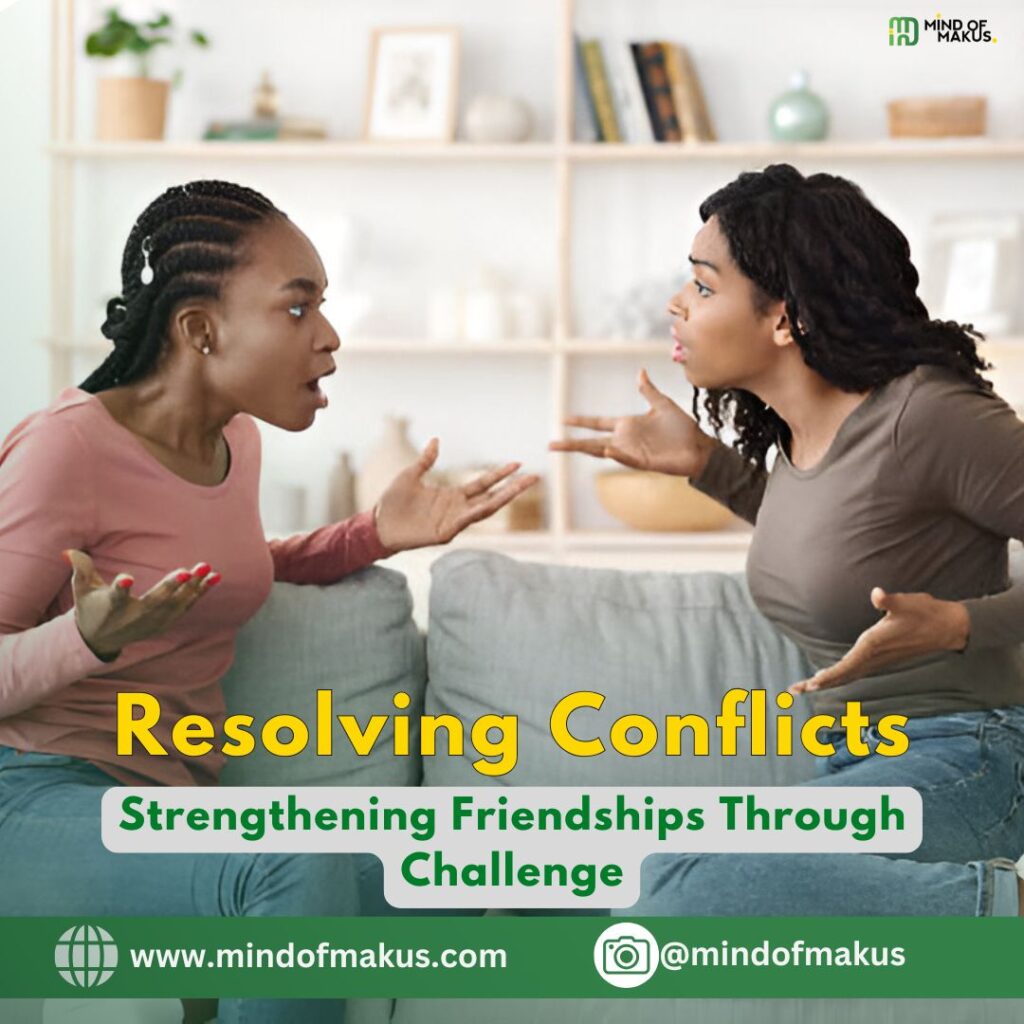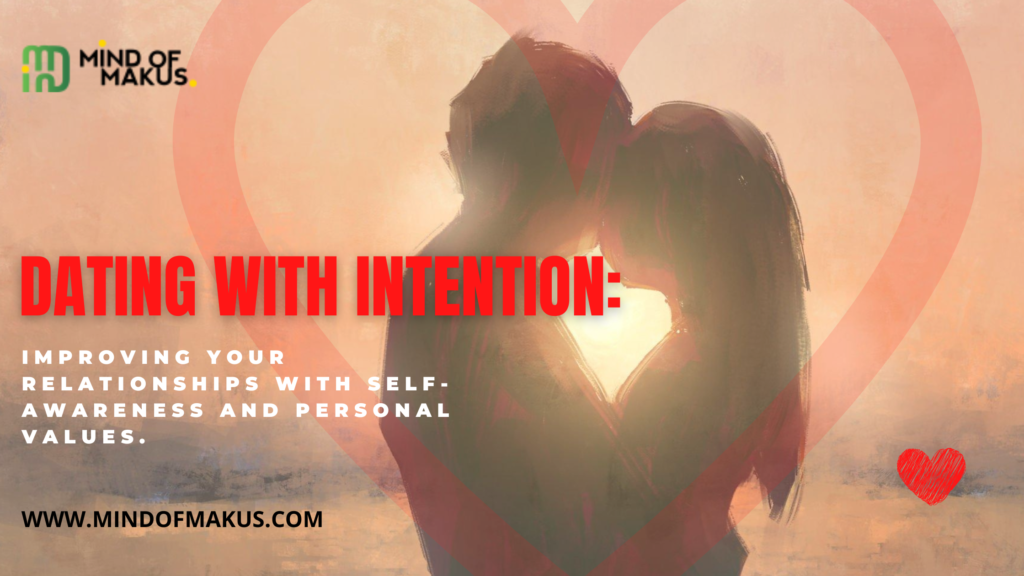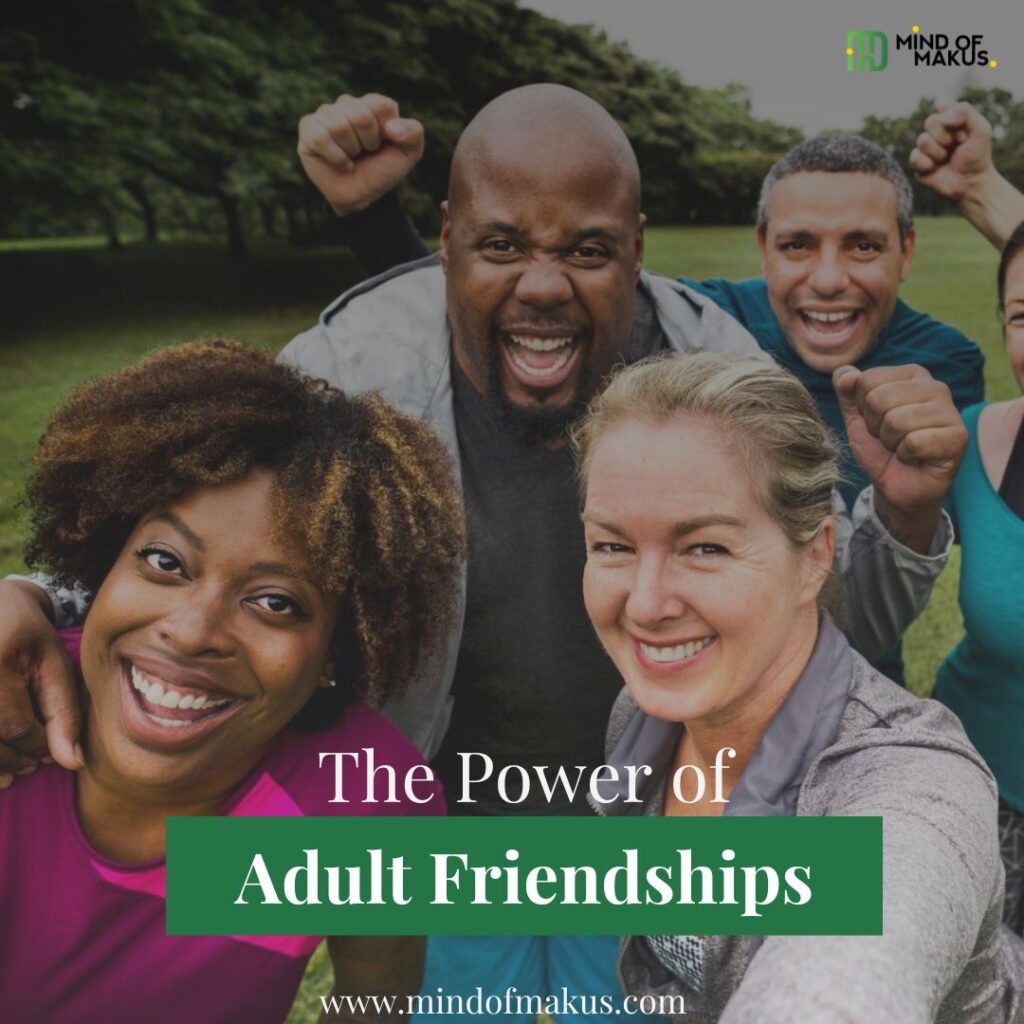Hello Beautiful People,
Welcome to another beautiful week in November.
Human relationships are complex by their very nature, and even more so when you are an adult and have separate lives. Friendships are not exempted from these complexities.
We get to know a stranger one day, and spend time integrating our lives by weaving beautiful moments and interactions together over time. No matter how close you are, conflicts are bound to arise in the years of your friendship. Today we will talk about some useful tips and feel free to share your experience in the comments.
In case you missed my first two posts on female friendships, here is a quick red for you
- The Role of Female Friendships in Personal Development and Purpose
- The Role of Boundaries in Sisterhood
How you address and resolve these conflicts is what truly strengthens the bond. In this blog post, we’ll explore ways to handle conflicts with grace and empathy, turning challenges into opportunities for growth in your friendships.


Why Conflict is Normal—and Healthy—in Friendships
Do you know when conflict has arisen in your friendship group or between you and another friend? You will know by the way your spirit rises up to defense, or how you suddenly want to protect yourself from them by retreating into a shell, all of a sudden you don’t want to see them or speak with them, these are signs of conflict.
Do you notice it? I ask because we cannot solve a problem we don’t acknowledge. It is important to trust yourself before you can trust a friend. Do you trust your intuition to pick it up when things are out of alignment, when your core values have been violated, when someone has hurt you, when you are not in agreement with a situation or circumstance?
Do you notice?
Disagreements and misunderstandings are natural in any close relationship, including friendships. When two people with unique perspectives and personalities connect, it’s only a matter of time before differences emerge. Healthy conflict allows friends to:
- Gain a deeper understanding of each other’s needs and values.
- Set and reinforce boundaries that promote mutual respect.
- Strengthen the relationship by working through issues instead of avoiding them
- Engage with one another with love and with the best interest of the other at heart
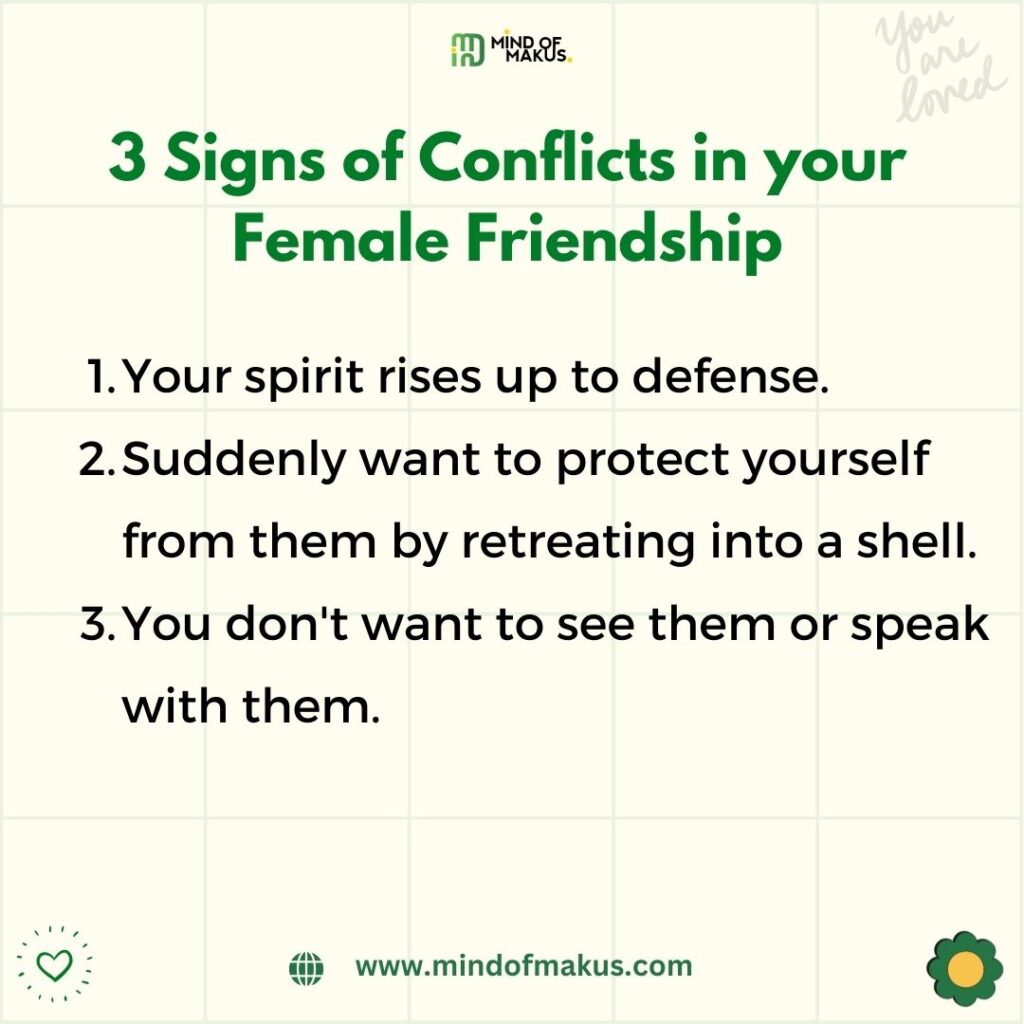

Steps to Resolve Conflicts in Friendships
When conflicts arise, it’s easy to let emotions take over, very easy oooo. However, approaching the situation with calmness and empathy can make all the difference. Here’s a step-by-step guide to handling conflicts in a way that promotes understanding and growth:
1. Give Yourselves Time to Cool Down
Emotions can run high during a disagreement, so taking a step back can help both you and your friend process your feelings before engaging in a discussion. This isn’t about avoiding the issue but allowing each person space to reflect. A cooling-off period can lead to a more rational, thoughtful conversation.
2. Initiate Open and Honest Communication
Start by letting your friend know you want to discuss the issue in a calm, understanding way. Use “I” statements to express your feelings and concerns without placing blame.
For example, say, “I feel hurt when…” instead of “You always….” This approach reduces defensiveness and shows that you’re focused on resolving the issue rather than assigning blame. Freely utilize various means of communication. Spoken conversation, texts, letter writing, voice notes etc
Think about the environment you are having the conversations. If it’s physical, ensure it’s a neutral space where you both feel safe. I like park walks for talking things out and it’s nice to take a small token or drinks or snacks. Food makes it all go down easier.
3. Practice Active Listening
When it’s your friend’s turn to share her perspective, listen actively. This means being fully present, avoiding interruptions, and responding with empathy.
Active listening allows you to understand her side of the story and shows her that her feelings are valid, even if you may not entirely agree.
Take a note and write down things you want to respond to when it’s your turn, speak in low tones, pause and consider what you are saying carefully and if you need to write down points to make, please feel free to.
When you listen, turn off distractions like phones, make eye contact, take deep breathes to calm yourself down when you start getting worked up. Drink ice water and be “camming dan”.
Subscribe to My Newsletter
4. Acknowledge and Validate Each Other’s Feelings
It’s important to validate each other’s emotions, as this helps both of you feel seen and understood. For example, you might say, “I understand why that would make you feel hurt.” Validation fosters compassion and reinforces that your friendship is a safe space for open communication.
5. Find Common Ground and Compromise
Conflict resolution often requires a willingness to compromise. Once both of you have expressed your feelings and understood each other’s perspectives, work together to find a solution that honors both of your needs.
This might mean setting new boundaries, agreeing to communicate differently, or acknowledging areas where each of you can make adjustments. Respect the decision, it will evolve at the right time but respect it first.
6. Forgive and Move Forward
Forgiveness is a powerful tool in maintaining and strengthening friendships. Once you’ve addressed the issue and found a resolution, let go of any lingering resentment. Holding onto grudges can erode the friendship, while forgiveness allows you both to grow and continue supporting each other.
Remember, forgiveness doesn’t mean forgetting the lesson but choosing not to let it harm the friendship. I am a great advocate for praying for your friends, pray for them, pray often and mention the issues you would want God to help you with in the friendship.
Being a Christian means I don’t carelessly go into any relationship because I believe that every relationship serves a purpose to help me achieve God’s will in the lifetime. So praying is such an important part of friendship for me. Try it but don’t be surprised if you now realise you are the one that needs to work on yourself first.
7. Learn from the Conflict
Conflict often brings to light areas where growth is needed, whether in communication, boundary-setting, or understanding each other’s needs. Reflect on what you learned from the experience and how it can help you be a better friend moving forward. Each conflict offers valuable insights into the relationship and your own behavior.
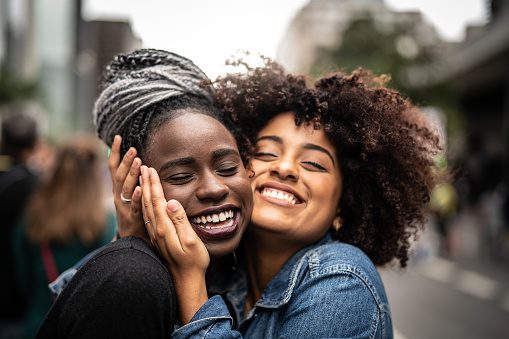

Tips for Preventing Conflict in Female Friendships
While conflict is sometimes inevitable, we are not helpless to avoid having them often and unnecessarily. Check these out:
- Establish Clear Boundaries Early On
Boundaries allow each friend to feel respected and understood. Establishing them early can prevent future issues and set the stage for a balanced, respectful friendship. If you don’t like people hugging your husband, please say it early, don’t wait and then embarrass everyone one day with an explosive tantrum. Stop, we are adults. - Communicate Regularly and Openly
Open communication prevents assumptions and keeps both friends on the same page. Discussing your needs, concerns, and boundaries openly fosters a more transparent and supportive connection. Be loving in your communication, some friends communicate in passive aggressive tones and no this is not acceptable. Your friend is not the butt of jokes all the time, your friend is not where you gain social points. Stop it now! Big them up, blow their trumpet, highlight their gifts and talents. - Be Mindful of Each Other’s Time and Space
Every friendship is unique, with each person having different needs for space and connection. Be mindful of how often you reach out and check in to ensure that both of you feel comfortable with the level of interaction. - Celebrate Each Other’s Wins Without Comparison
Friendships thrive on support and mutual celebration. Resist the urge to compare yourself to your friend’s successes or experiences, and instead, celebrate her wins as if they were your own. This reduces envy and strengthens the bond. - Make Time for Quality Moments Together
Life can be busy, but setting aside time for meaningful moments with your friend reinforces the bond and reminds you both of the value of your friendship. This consistent effort helps prevent small issues from building up over time. Put time in your calendar for meeting and bonding, book events you love, spend simple days together, family time together. Weave those threads thicker over time.
The Benefits of Working Through Conflict
Here are a few benefits:
- Deeper Trust: When friends know they can face conflicts and still come out stronger, trust grows. Each resolved conflict reinforces that the friendship can withstand challenges.
- Enhanced Emotional Intelligence: Conflict resolution requires empathy, active listening, and self-awareness—all of which contribute to emotional intelligence. Navigating conflicts makes both you and your friend more skilled at handling difficult conversations.
- Increased Resilience in the Friendship: Friendships that survive conflicts are more resilient. The experience of working through a challenge together builds confidence that the relationship can endure future issues.
- Stronger Connection: After resolving a conflict, many friends report feeling closer and more connected. Working through disagreements often reveals each person’s vulnerabilities and strengthens the bond.
Conflict Resolution is a Path to Growth
Conflict, while uncomfortable, is often a pathway to growth and a deeper connection in friendships. By approaching disagreements with patience, empathy, and a commitment to understanding each other, friends can emerge stronger and more connected. Remember, it’s not the conflict itself but how you handle it that determines the strength of the relationship. Repair is more important than the trauma, get on repairing.
Let’s embrace the role of conflict resolution in female friendships as a tool for deepening trust, learning more about each other, and fostering a supportive bond that celebrates both individuality and togetherness. Sisterhood is one of life’s most beautiful connections—let’s nurture it by honoring each other’s needs, respecting boundaries, and always seeking ways to grow and strengthen our bonds.
Until next time, stay authentic,
Stay resilient, and continue to honour your needs.
Live wholeheartedly,
Amaka
2 Cor 3:2(MSG)
You yourselves are all the endorsement we need. Your very lives are a letter that anyone can read by just looking at you. Christ himself wrote it—not with ink, but with God’s living Spirit; not chiseled into stone, but carved into human lives—and we publish it.
